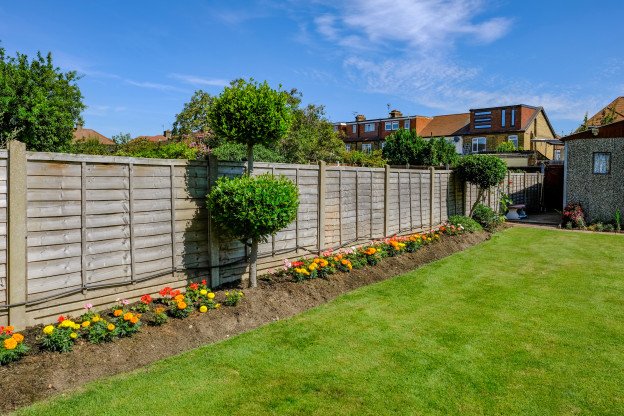Organic Compost: The Key to a Thriving Garden
Discover the benefits of organic compost for your garden. Explore the best compost for gardening and create healthier plants with organic solutions.

If you're passionate about growing lush, vibrant plants, the secret to success might be simpler than you think—organic compost. This natural wonder is not only good for your plants but also for the environment. Whether you're an experienced gardener or just starting your green journey, choosing the right compost can make a significant difference in the health of your garden. In this guide, we'll explore why organic compost should be your go-to choice for improving soil health, enhancing plant growth, and supporting sustainable gardening.
What is Organic Compost?
Organic compost is a natural blend of decomposed organic matter, such as plant material, animal manure, and kitchen scraps. It's a rich, nutrient-packed substance that improves soil structure, promotes healthy plant growth, and helps retain moisture. Organic compost is free from synthetic chemicals and additives, making it an ideal choice for gardeners looking for an eco-friendly and sustainable option.
Why Choose Organic Compost?
In the world of gardening, soil health is everything. Healthy soil is the foundation of any successful garden. Organic compost not only enriches the soil with vital nutrients but also helps to improve its structure, making it easier for plants to root and grow. The benefits of using organic compost are numerous:
-
Nutrient-Rich: Organic compost provides essential nutrients like nitrogen, phosphorus, and potassium, which are crucial for plant growth.
-
Improved Soil Structure: Compost helps aerate the soil, allowing roots to penetrate more easily and improving drainage.
-
Water Retention: It helps retain moisture in the soil, reducing the need for frequent watering.
-
Environmental Impact: By using organic compost, you're reducing the amount of waste sent to landfills, as many compostable materials are sourced from everyday waste.
How Does Organic Compost Benefit Your Garden?
The advantages of using organic compost go beyond just adding nutrients to the soil. Here's how it can transform your garden:
1. Enhances Soil Fertility
Organic compost is packed with beneficial microorganisms that break down organic matter and release nutrients into the soil. This helps improve the fertility of the soil, ensuring that your plants have access to the nutrients they need to thrive.
2. Supports Healthy Plant Growth
By using organic compost, you're giving your plants the best possible environment to grow. The nutrients in the compost fuel healthy root development, resulting in stronger plants that are better equipped to withstand pests and diseases.
3. Reduces the Need for Chemical Fertilisers
Many chemical fertilisers can harm the environment and soil health over time. Organic compost is a natural alternative that nourishes plants without the need for harsh chemicals. This means you're not only benefiting your garden but also contributing to a healthier planet.
4. Boosts Plant Resistance to Pests and Diseases
Plants grown in healthy, well-aerated soil are naturally more resistant to pests and diseases. The beneficial microorganisms in organic compost help strengthen plant defences, making them less susceptible to common garden problems.
5. Promotes Sustainability
One of the key benefits of organic compost is that it promotes sustainable gardening practices. By using compost, you're recycling organic waste and reducing your carbon footprint. Plus, organic compost is free from harmful chemicals, making it a safe choice for you, your plants, and the environment.
How to Use Organic Compost in Your Garden
Now that you know the benefits of organic compost, the next step is to learn how to use it in your garden. Here’s a step-by-step guide to incorporating organic compost into your gardening routine:
1. Prepare the Soil
Before adding compost, it’s important to prepare your soil. This involves removing weeds, rocks, and any other debris that could hinder plant growth. If you’re working with clay soil, organic compost will help improve its structure by loosening it up and making it more porous.
2. Add the Compost
Once the soil is ready, spread a generous layer of organic compost over the surface of the soil. Aim for about 2 to 3 inches of compost. Use a rake or garden fork to work the compost into the soil, ensuring it's evenly distributed.
3. Water Your Garden
After adding the compost, water your garden thoroughly. This helps the compost settle into the soil and ensures that the nutrients are absorbed by the plants.
4. Repeat Regularly
To maintain healthy soil, it's a good idea to add compost to your garden annually. This will keep your soil rich in nutrients and ensure long-term plant health.
Organic vs. Peat-Free Compost: What's the Difference?
If you're looking for an eco-friendly alternative to traditional compost, peat-free compost is an excellent option. Peat-free compost is made from renewable organic materials like wood fibres, coir, and composted bark, rather than peat moss. Peat is a non-renewable resource, and its extraction can cause harm to fragile ecosystems, so using peat-free compost is a more sustainable choice.
At Fit Fit Garden, we offer a range of peat-free compost options, so you can choose the one that best suits your gardening needs. If you're committed to organic gardening, both organic and peat-free composts are great choices that promote sustainability and soil health.
Best Compost for Gardening
When it comes to choosing the best compost for your garden, look for products that are high in organic matter, nutrient-rich, and free from harmful chemicals. The best compost will not only nourish your plants but also improve the soil's structure, helping to retain moisture and support healthy root growth.
Some Top Recommendations:
-
Organic Compost for Garden Beds: Perfect for enriching your garden beds and providing essential nutrients for a variety of plants.
-
Multi-Purpose Compost: Ideal for potting plants, containers, and beds, this compost supports a wide range of gardening activities.
-
Compost for Vegetables: If you're growing your own food, look for compost that is specifically designed for vegetable gardens, providing the nutrients your crops need to flourish.
Benefits for Organic Gardeners
As an organic gardener, using organic compost is essential for maintaining healthy, chemical-free soil. Organic gardening focuses on using natural methods to grow plants, and organic compost is the backbone of this approach. It enriches the soil without relying on synthetic fertilisers, making it a sustainable and eco-friendly solution for your gardening needs.
Tips for Organic Gardeners:
-
Mulch with Compost: Using compost as mulch helps retain moisture and prevents weeds from growing.
-
Compost Tea: Create a nutrient-rich compost tea by steeping compost in water. This liquid fertiliser can be used to feed your plants directly.
-
Compost for Soil Health: Regularly adding compost will improve soil structure over time, making it easier for roots to penetrate and grow.
Where to Buy Organic Compost in the UK
At Fit Fit Garden, we offer a wide selection of organic compost options that are perfect for all types of gardens. Whether you need compost for your vegetable garden, flower beds, or indoor plants, we’ve got you covered.
Visit our Organic Compost Collection for more information and to purchase the best organic compost for your garden. We pride ourselves on offering high-quality, sustainable compost that supports healthy plant growth and soil health.
Conclusion
Using organic compost in your garden is one of the best decisions you can make for the health of your plants and the environment. Not only does it provide essential nutrients, but it also promotes sustainable gardening practices. Whether you choose traditional organic compost or opt for a peat-free alternative, the benefits are clear. Your plants will thrive, your soil will improve, and you'll be contributing to a greener, more sustainable planet.
By choosing organic compost, you're investing in the long-term health of your garden, your plants, and the environment. Start using organic compost today, and see the difference it makes in your garden!
Internal Links
-
Multi-Purpose Compost
-
Peat-Free Compost
External Links
What's Your Reaction?


















